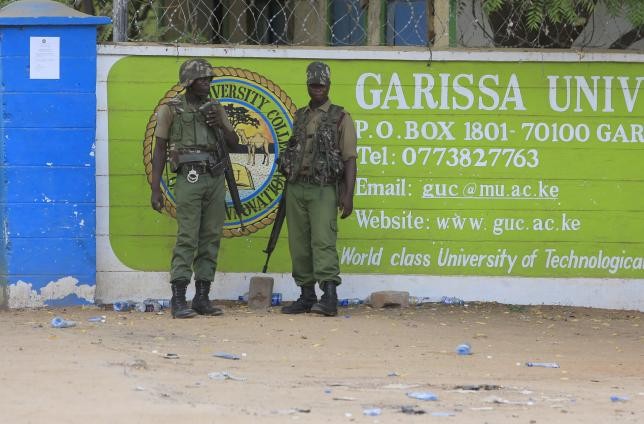Kenya had launched airstrikes on Monday against the Islamic militant group al-Shabaab in Somalia as a response to Thursday's Garissa University College attack where at least 148 people were killed.
Military spokesman Col David Obonyo told the Associated Press that the warplanes had attacked positions held by the al-Shabaab terror group in the Gedo region of Somalia starting Sunday afternoon and continuing into Monday morning, Fox News reports.
He said that the airstrikes are not just part of the response to the attack in Garissa, but also a part of continuing operations.
After the attack in the university, al-Shabaab continued to issue threats that the terrorization in Kenya was far from over. "No amount of precaution or safety measures will be able to guarantee your safety, thwart another attack or prevent another bloodbath," the statement from the militant group said.
Four of the attackers were killed on Thursday to end the siege. Their bullet-ridden bodies were displayed in Garissa later that day.
Meanwhile, more information started to surface regarding the attack. Authorities said on Sunday that one of the al-Shabaab gunmen was identified as the son of a government official in Kenya, The Guardian reports.
The man was identified as Abdirahim Mohammed Abdullahi, who was the son of a government chief in Mandera County, the Interior Ministry spokesman Mwenda Njoka said. Abdullahi was reported missing by his father last year and was feared that he had gone to Somalia. Abdullahi, along with the three other attackers, was killed by Kenyan security forces on Thursday.
Njoka said that it is important that the parents inform authorities if their children go missing or show tendencies of following violent extremism in order to prevent the rise of Islamic radicalization in Kenya.
According to experts, Kenyans make up the largest number of foreign fighters in al-Shabaab. Hundreds of Kenyan youths have trained with al-Shabaab and then returned to Kenya-which poses a major security threat to their community, according to former police chief Mathew Iteere.



























